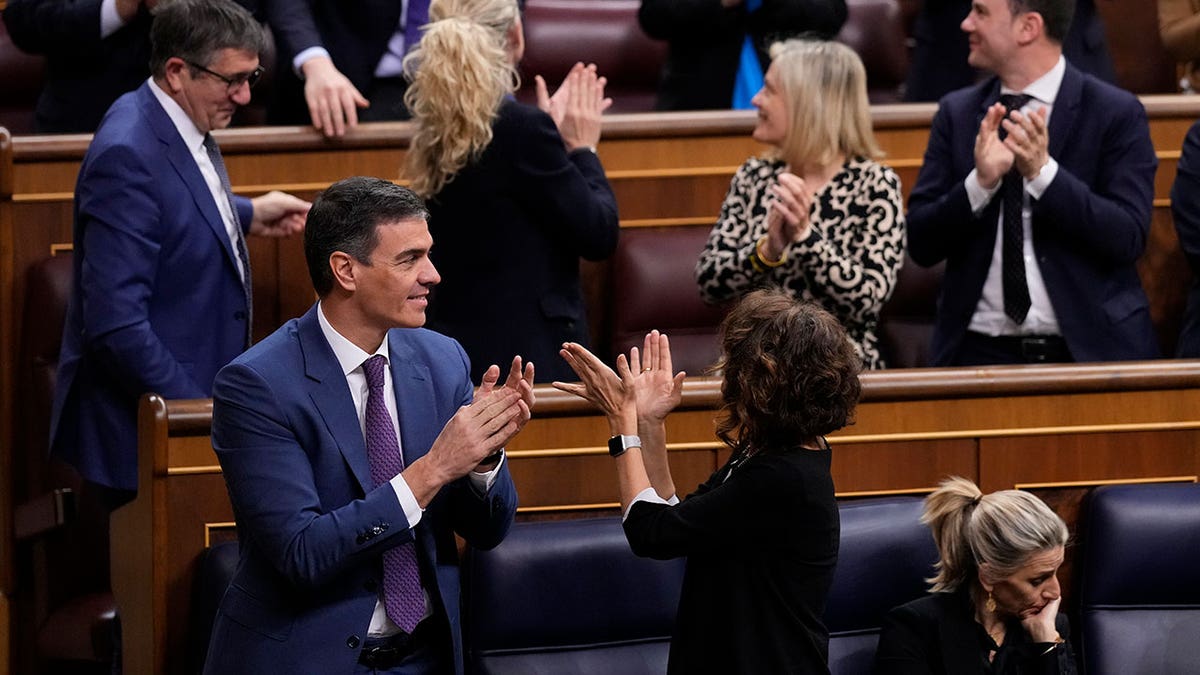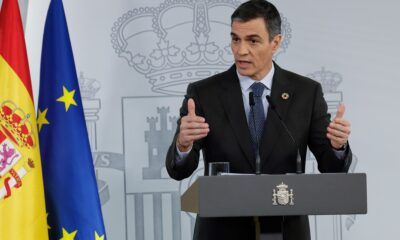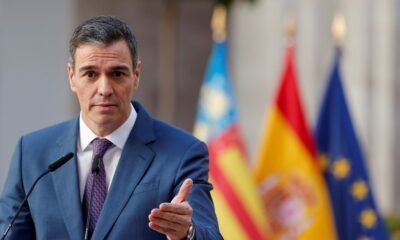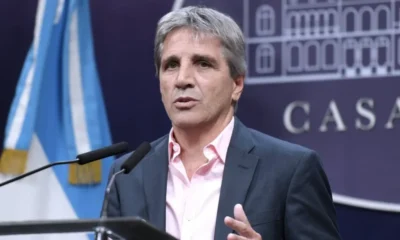INTERNACIONAL
Spain’s parliament passes controversial amnesty bill forgiving Catalan separatist crimes

- Spain’s Parliament has approved an amnesty bill, forgiving crimes by Catalan separatists during a failed independence referendum in 2017.
- The 2017 crisis saw Catalonia’s regional administration staging a referendum against orders from Madrid.
- The bill’s passage remains uncertain, facing rejection in the conservative-majority Senate.
Spain’s Parliament approved on Thursday a controversial amnesty bill aimed at forgiving crimes — both proven and alleged — committed by Catalan separatists during a chaotic attempt to hold an independence referendum in the region six years ago.
Socialist Prime Minister Pedro Sánchez has promoted the amnesty as a way to move past the 2017 secession attempt by the then-leaders of Catalonia, a northeastern region centered around Barcelona where many speak the local Catalan language as well as Spanish.
However, the bill has also met opposition from millions of Spaniards who believe that the people who provoked one of Spain’s biggest political crises should face charges including embezzlement and promoting public disorder.
SPANISH PARLIAMENT TO VOTE ON CONTROVERSIAL AMNESTY BILL FOR CATALAN SEPARATISTS
Sánchez has already pardoned nine jailed Catalan independence leaders, a move that helped heal wounds at little political cost. But the amnesty is proving to be much more divisive.

Spain’s Socialist Prime Minister Pedro Sanchez, Spain’s Deputy Prime Minister and Ministry of Finance Maria Jesus Montero and Spain’s second Deputy Prime Minister and Labour Minister Yolanda Diaz are seen on March 14, 2024, at the Spanish Parliament in Madrid, Spain. Spain’s Parliament approved on Thursday a controversial amnesty bill aimed at forgiving crimes committed by Catalan separatists during a chaotic attempt to hold an independence referendum in the region six years ago. (AP Photo/Manu Fernandez)
The bill was passed by 178-172 votes in favor in the 350-seat lower house of Parliament in Madrid.
The secession crisis erupted in 2017, when a regional administration led by Carles Puigdemont staged a referendum on independence, defying orders from the national government and a ruling from Spain’s top court that doing so violated the constitution. Madrid sent in police in an attempt to stop the referendum, which were opposed by protests that turned violent.
The Catalan Parliament declared independence on Oct. 27 that year but it failed to garner any international support. Puigdemont and several other senior officials later fled Spain.
Hundreds or thousands of people in Catalonia face the threat of prosecutions related to the referendum or protests, and Puigdemont and other leaders remain abroad.
Recent court probes have accused the former regional president of terrorism for allegedly masterminding massive protests that clashed violently with police and closed roads, train lines and the Barcelona airport in 2019.
Sánchez agreed to the amnesty to secure the backing of two Catalan separatist parties, after an inconclusive national election last July turned them into kingmakers.
The conservative opposition accuses Sánchez of selling out the rule of law in exchange for another term in the Moncloa Palace and has organized major street protests during recent months.
Socialist party parliamentary spokesman Patxi López defended the bill Thursday as a move to seek a page-turning «reconciliation» with Catalonia.
The opposition Popular Party leader Alberto Núñez Feijóo hit back saying that «this is not reconciliation but submission.»
It was not clear whether the deal will add stability to Sánchez’s minority government: Junts, a separatist party led by Puigdemont, said that Sánchez owed them the amnesty for having supported his bid to stay in power, and that their potential backing of his policies would depend on what they can get in return.
The bill still faces a number of procedural steps before becoming law. The Senate, which has a conservative majority is expected to reject it, which would mean that Parliament’s lower house will have to vote for it a second time to push it through.
Sánchez’s party has had a very hard time crafting a bill that satisfies the separatists and which will surely be highly scrutinized by the courts. Parliament rejected an earlier version of the bill in late January when Junts said it didn’t do enough to protect Puigdemont. The bill then went back to a parliamentary committee, where it was tweaked to suit Junts’ needs.
Puigdemont now lives in Belgium, where he has become a European Parliament member. A fugitive from Spanish justice, he calls himself a political exile.
Thursday’s vote comes a day after Catalonia’s regional leader called early elections. That decision added more uncertainty to Spanish politics and led to Sánchez canceling plans for a 2024 budget because of the difficulty he would have had trying to get the support of the two separatist parties during election time.
Oriol Bartomeus, a professor of political science at the Autonomous University of Barcelona, said Sánchez’s government remains weak despite having cleared the amnesty hurdle. But the snap election in Catalonia at least buys him some time.
SPAIN’S SÁNCHEZ DEFENDS CONTROVERSIAL AMNESTY DEAL BROKERED WITH CATALAN SEPARATISTS
«The good thing for Sánchez is that instead of now having to face some extremely difficult negotiations over a budget, he can get a breather if the Socialists do well in the Catalan elections,» Bartomeus told The Associated Press.
Spain granted a sweeping amnesty during its transition back to democracy following the death of dictator Francisco Franco in 1975. But legal experts are divided over the constitutionality of an amnesty for the Catalan separatists. Its legal critics say that it violates the principle of equality among Spaniards by favoring those of one region.
The government says the amnesty could help hundreds of people, while the pro-independence Catalan organization Omnium Cultural says it should benefit some 4,400 people, mostly minor officials and ordinary citizens who either helped to organize the referendum or participated in protests.
The application of the amnesty will be decided by the courts on a case-by-case basis.
INTERNACIONAL
La guerra con Rusia: Donald Trump quiere que Ucrania entregue a Estados Unidos tierras raras a cambio de ayuda

Con la OTAN
-
POLITICA3 días ago
Marcha Federal Antifascista: el Gobierno desacredita la movilización y tilda de “política” la convocatoria
-
POLITICA1 día ago
Denuncia judicial contra Axel Kicillof por la crisis de inseguridad en la provincia de Buenos Aires
-
SOCIEDAD1 día ago
Conurbano salvaje. Hallaron muertos debajo de un puente a dos adolescentes que habían desaparecido el jueves
-
POLITICA2 días ago
El Gobierno cruzó a Axel Kicillof por la inseguridad en la Provincia: “Este es el garantismo kirchnerista”
-
POLITICA2 días ago
Un presidente a contramano que esta vez prefirió pisar el freno
-
ECONOMIA2 días ago
El método para empezar invertir si te faltan 10 años para jubilarte








































